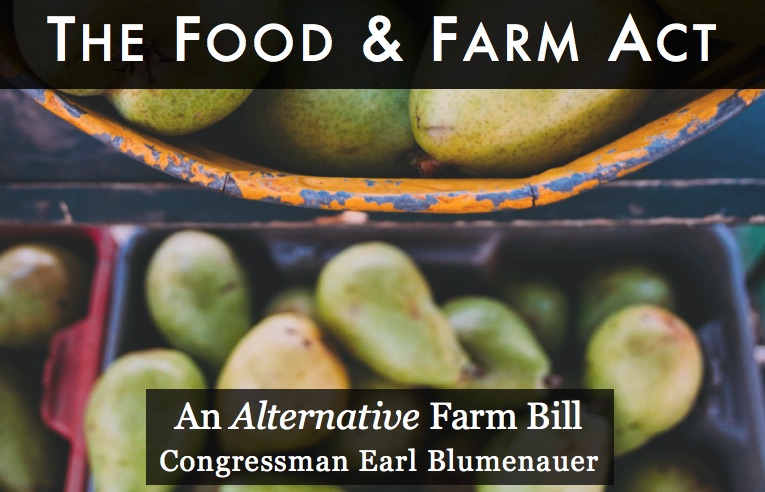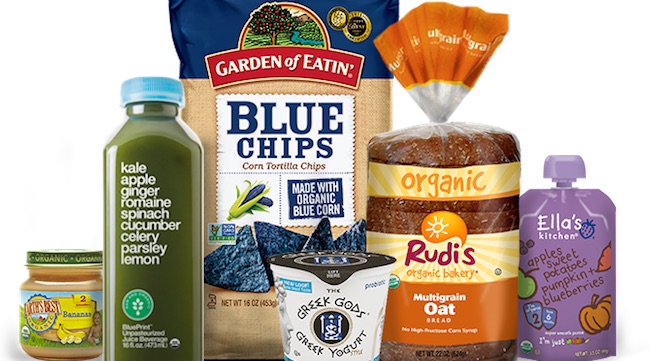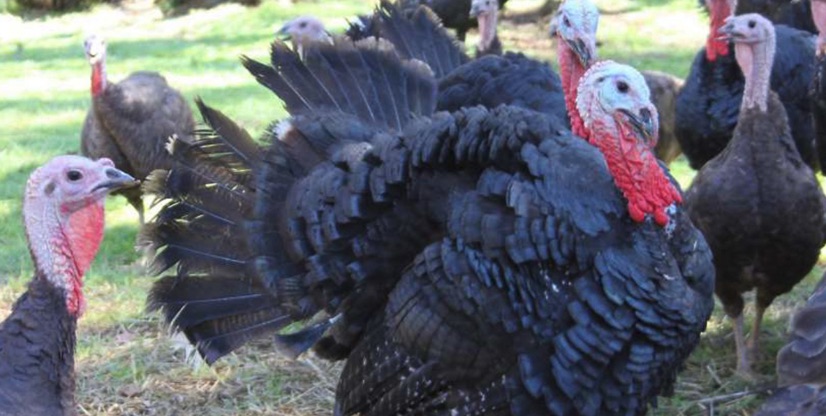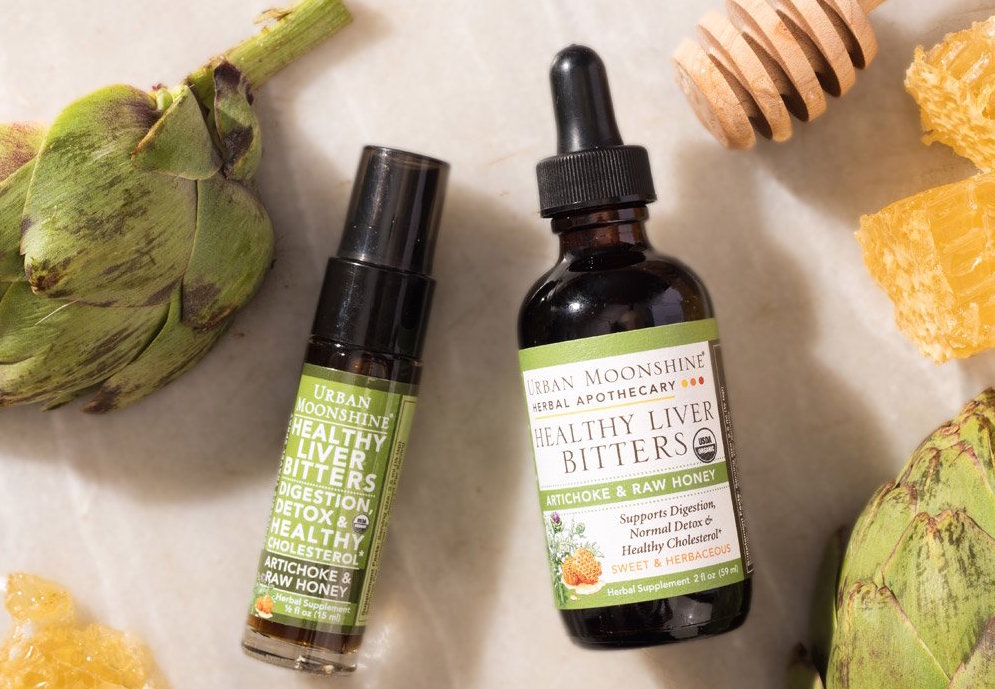
Why The Food and Farm Act is Exactly What We Need Right Now
With the major seed and chemical companies having controlled agricultural policy in the U.S. for decades, mostly to the detriment of the health of American citizens, U.S. Representative Earl Blumenauer (D-OR) aims to change that with his recently introduced piece of legislation called the Food and Farm Act.
This bill serves as an alternative to the Farm Bill, which is set to expire in 2018 and has historically prioritized large-scale, commodity farmers at the expense of the small and mid-sized farmers and ranchers who produce a diverse array of products.
Among other things, the Food and Farm Act will:
– Cut, cap, and clarify the existing farm subsidy programs that are available in the commodity, conservation, and crop insurance titles of the Farm Bill.
– Reform existing conservation programs by distributing resources based on how effectively a project achieves conservation goals and minimizes environmental impact.
– Invest resources to expand access to healthy food in underserved areas, in schools, and at farmers markets.
– Provide support for beginning farmers and ranchers to enter and stay in the agriculture sector.
– Establish the first Food Waste Title of the Farm Bill to focus the federal government on food waste reduction.
– Invest in research and education programs that improve sustainable agriculture practices.
– Establish the first Animal Welfare Title in the Farm Bill to ensure that the treatment of animals is a central part of the country’s agriculture policy.
– Invest in existing programs and create new initiatives that support vibrant local and regional food systems.
Without question, the Food and Farm Act, also known as the Alternative Farm Bill, is a progressive piece of legislation that meets the needs of today’s consumers, family farmers, and ranchers. Furthermore, it will help provide healthy food to Americans and will benefit the environment by protecting our soil, water, and pollinators.
Yet, the introduction of the bill also raises several questions.
Seeking answers, I reached out to Kari Hamerschlag, Deputy Director of the Food and Agriculture Program at Friends of the Earth, whose organization supported this bill.
Given the current state of affairs with the Trump administration and how Big Ag spends hundreds of millions of dollars on lobbying in Washington, D.C. to control agricultural policy in the U.S., some people may think that we have no chance that the Alternative Farm Bill will pass. What do you say to that?
Rep. Blumenauer’s bill is not intended to pass as is.
However, the idea is that we can take pieces of the bill, organize around them, and get these pieces on the floor of Congress when the Farm Bill does get introduced.
While the House Ag Committee – which is controlled by conservative Republicans – generally doesn’t take much input from folks outside of the committee, the floor can vote on certain amendments. The last time around, there were more than 100 amendments considered on the floor. In fact, one Blumenauer amendment, which included many conservation provisions that are in this Alternative Farm Bill, lost by just a handful of votes.
So, Rep. Blumenauer’s bill gives us an important starting point and something very tangible to work with as we attempt to make badly needed changes to the existing Farm Bill and put an end to so many taxpayer dollars going to agribusiness polluters.
How does this Alternative Farm Bill benefit organic and regenerative farming?
The bill benefits organic and regenerative farming in many ways, although the bill does not necessarily refer to it as regenerative. There is a heavy emphasis on improving soil health, however.
Some measures include:
– Providing conservation support for organic and pasture-raised farming systems, including directing 20% of all conservation stewardship funding to practices which enhance soil health and another 20% to pesticide reductions.
– Support for local & regional meat processors and fruit & vegetable producers. This includes grants for aggregation, marketing, technical assistance, farmers markets, and distribution of specialty crops to schools.
– Right now, there is a $20,000 per year and an $80,000 total cap on conservation support for certified organic farmers or farmers transitioning to organic in EQIP’s Organic Initiative. The bill would lift this cap, which would be good for medium-sized and larger organic farmers.
– The bill would require that the Organic Animal Welfare Standards go into effect immediately. These standards have been postponed three times already since January and may very well never go into effect under the current USDA administration.
– Expanding the specialty crop block grant program, which provides some support to organic producers of fruits, nuts and vegetables. This is implemented in every state.
– The conservation compliance part of the bill will help reduce the damage that Big Ag has caused and will work towards restoring some of the carbon-rich farmland that we have lost. Additionally, the bill will require all farmers who get subsidies to implement management practices that protect soil and water, thereby reducing soil erosion and water pollution.
On a separate but related note, Rep. Chellie Pingree (D-ME) recently introduced the Organic Agriculture Research Act, a bill that would increase annual funding for organic research from $20 million to $50 million. Rep. Doug LaMalfa (R-CA), one of the most conservative members of the California delegation and a member of the Agriculture Committee, just signed on as a co-sponsor of the bill.
Given the bi-partisan support, there is a very good chance that the Organic Agriculture Research Act will get inserted into the Farm Bill.
What can organic food consumers or companies do to help?
Rep. Blumenauer’s bill just got introduced this past Thursday, and the Farm Bill in Congress isn’t expected to be introduced until sometime in the first half of 2018.
The best thing people can do is to ask their representatives in Congress to support the Food and Farm Act or to speak with these representatives about specific parts of the bill that they do like. They can also work closely with advocacy groups, such as Friends of the Earth, who are working with numerous coalitions around the country campaigning for this bill.
People can also urge their elected representatives, especially those on the House Ag Committee, to support the Organic Agriculture Research Act and to increase conservation funding across the board.
At the present moment, the vast majority of subsidies are going to chemical-intensive GMO crops that are then turned into animal feed, fuel or processed food. That’s just not what America needs.
—
For more information, here are the Food and Farm Act’s Press Release, Bill Highlights and Bill Text.
 |
Have a great Thanksgiving! 
Max Goldberg, Founder |
Quick Hits
* The deadline to comment on the proposed Regenerative Organic Certification standards is November 30th. To comment or to read the standards, click HERE.
* Congrats to my dear friend and Food Babe founder Vani Hari, who just launched her first product — a certified organic turmeric supplement.
* Sold under the brand name Truvani, this supplement will be tested for glyphosate and heavy metals. Very cool!
* On Living Maxwell, I wrote about the health risks associated with conventionally-grown spinach.
* Whole Foods Co-Founder and CEO John Mackey has joined the board of directors of Students for Liberty, the largest libertarian student organization in the world.
* The pesticide industry is pushing secret legislation on Capitol Hill that would dismantle Endangered Species Act (ESA) protections against deadly pesticides.
* Tell your Senators and Representative to oppose this disgraceful legislation.
* For those of you who have a NutriBullet, be careful. NutriBullet is facing dozens of lawsuits after its blenders have exploded during use.
* I wonder what David Wolfe has to say about this…..
* I saw the excellent documentary RiverBlue the other night, a film that puts a spotlight on the environmental and social atrocities in the textile industry. This movie will certainly make you think twice the next time you go clothes shopping.
Weekly News Summaries


Nestle is Exploring Purchase of Hain Celestial
By Lauren Hirsch
It has been reported that Nestle is one of several suitors who may make a bid for natural & organic food company Hain Celestial.
Measuring Amazon's Effect on Whole Foods
By Shira Ovide
What being acquired will do to a company -- Whole Foods is now on track to grow at the fastest rate in several years.

Danone to Focus on Regenerative Agriculture
By Katy Askew
In its goal to reduce carbon emissions and to increase transparency for consumers, Danone has partnered with the French government to support regenerative agriculture.


Turkeys Sold at Whole Foods Contain FDA-Prohibited Drugs
By Katherine Paul
USDA tests have shown that Diestel Turkey, a popular brand of turkeys sold at Whole Foods, contains FDA-prohibited drugs, which have toxic effects on humans.

Lawsuit is Likely Over Hydroponics in Organic
By Mateusz Perkowski
With the NOSB refusing to forbid hydroponics in organic, it appears that litigation may be imminent.

EU Council Approves New Rules on Organic Production
By Niamh Michail
The new regulations aim to harmonize rules on organic production throughout the EU, reduce red tape, and make it easier for new products to get certification.


Traditional Medicinals Buys Urban Moonshine
By Alicia Freese
Organic tea company Traditional Medicinals has purchased Urban Moonshine, a Vermont-based bitters and tonic brand that generates $2 million in annual revenues.

Door to Door Organics Abruptly Closes Down
By Jerd Smith
Without advance warning, online grocer Door to Door Organics closed down last week, unable to raise additional capital to fund operations.
The material in this newsletter is copyrighted and may be reprinted by permission only. All requests must be in writing. Please use our contact form to request republication rights.
Newsletter Archive
Quick Hits
* The deadline to comment on the proposed Regenerative Organic Certification standards is November 30th. To comment or to read the standards, click HERE.
* Congrats to my dear friend and Food Babe founder Vani Hari, who just launched her first product — a certified organic turmeric supplement.
* Sold under the brand name Truvani, this supplement will be tested for glyphosate and heavy metals. Very cool!
* On Living Maxwell, I wrote about the health risks associated with conventionally-grown spinach.
* Whole Foods Co-Founder and CEO John Mackey has joined the board of directors of Students for Liberty, the largest libertarian student organization in the world.
* The pesticide industry is pushing secret legislation on Capitol Hill that would dismantle Endangered Species Act (ESA) protections against deadly pesticides.
* Tell your Senators and Representative to oppose this disgraceful legislation.
* For those of you who have a NutriBullet, be careful. NutriBullet is facing dozens of lawsuits after its blenders have exploded during use.
* I wonder what David Wolfe has to say about this…..
* I saw the excellent documentary RiverBlue the other night, a film that puts a spotlight on the environmental and social atrocities in the textile industry. This movie will certainly make you think twice the next time you go clothes shopping.
